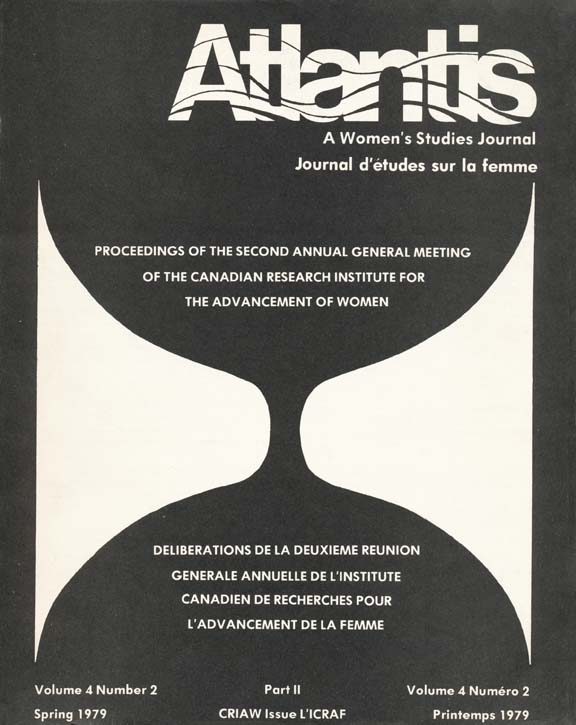The Influence of Feminism and Collectivity on the Research Process: The Vancouver Women's Health Collective
Abstract
Au cours de la description et de I'évaluation d'une organisation non traditionnelle de soins de santé pour femmes, nous avons apporté des changements à nos méthodes de recherche pour répondre aux besoins de I 'organisation étudiée. Le féminisme et le collectivisme du "Women's Health Collective" de Vancouver ont eu une influence profonde sur nous en tant que chercheurs, en tant que femmes, et en tant que partenaires vouées au changement social. Notre approche première, celle de la recherche traditionnelle, c'est-à-dire "fermée," est devenue une approche innovatrice et coopérative, c'est-à-dire "ouverte." Les principes féministes et égalitaristes que nous épousions dans notre vie personnelle ont également imprègné notre vie de travail quotidien. Le principe du portage de la "collective," en I 'appliquant à I'information, au pouvoir et aux responsabilités, est devenu le principe de la recherche. Par conséquant, la recherche, les chercheurs et I'organisation elle-mime furent transformées. Cet exposé se penche sur trois questions: 1) la lutte que doivent mener certaines féministes afin de croître en tant que personnes fortes et autonomes et afin de structurer leurs organisations de façon à ce que le pouvoir soit un outil de portage plutôt qu 'un moyen de domination; 2) les relations entre cette lutte et la distribution des connaissances dans la société et dans une "collective;" et 3) I 'integration de cette lutte à la vie personnelle et professionnelle des féministes.Downloads
Published
Issue
Section
License
Authors who publish with this journal agree to the following terms:
1. Authors retain copyright and grant the journal right of first publication, with the work simultaneously licensed under a Creative Commons Attribution 4.0 International License that allows others to share the work with an acknowledgement of the work's authorship and initial publication in this journal.
2. Authors are aware that articles published in Atlantis are indexed and made available through various scholarly and professional search tools, including but not limited to Erudit.
3. Authors are able to enter into separate, additional contractual arrangements for the non-exclusive distribution of the journal's published version of the work (e.g., post it to an institutional repository or publish it in a book), with an acknowledgement of its initial publication in this journal.
4. Authors are permitted and encouraged to preprint their work, that is, post their work online (e.g., in institutional repositories or on their website) prior to and during the submission process. This can lead to productive exchanges, as well as earlier and greater citation of published work. Read more on preprints here.







